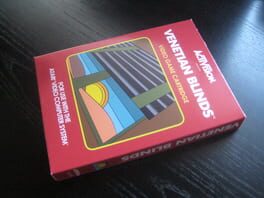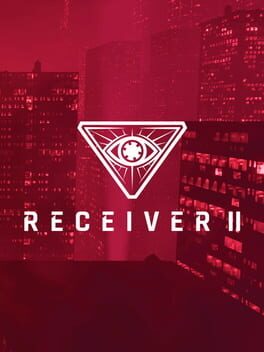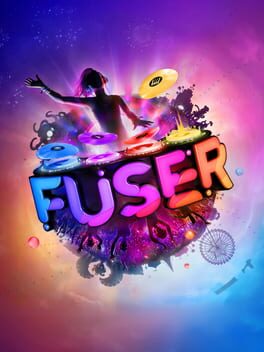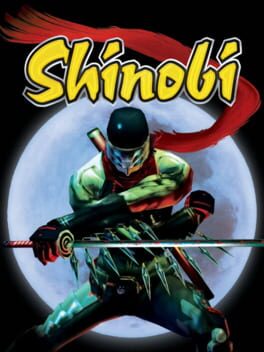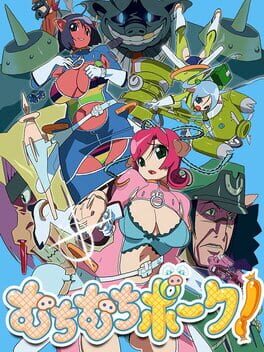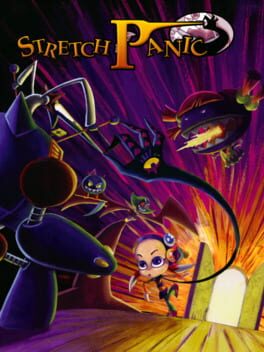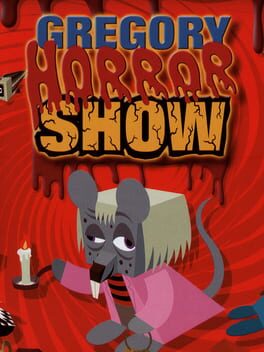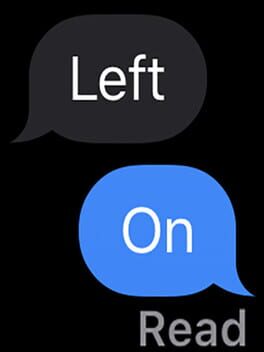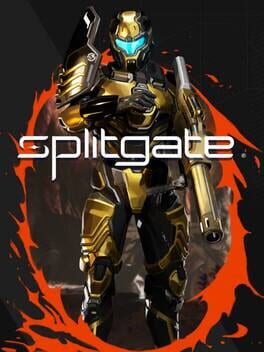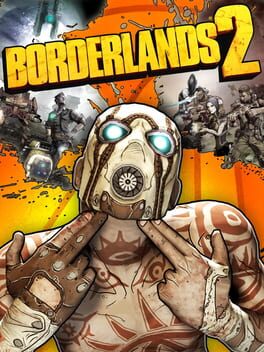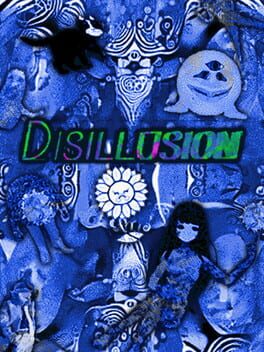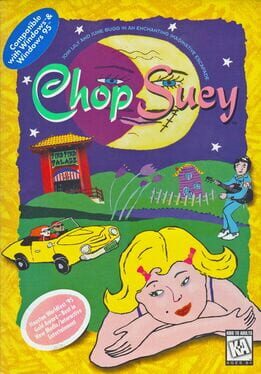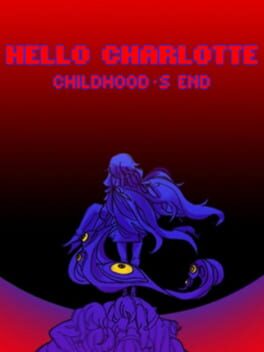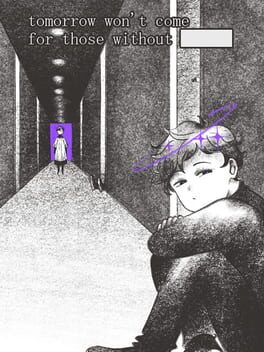FMTownsParty
1982
A petty demonstration created by a developer to taunt the encroaching accusation of white-collar criminality.
The game was slotted into trivia-horny gamers' rolodexes when it was put on Xbox 360's Game Room, which would only be surprising if you weren't familiar with how awful that platform was. The idea that someone business-minded thought people would pay for this is honestly hilarious, but really it's the quartercocked attempt at games preservation on display that pisses in the water of its otherwise interesting history.
With a name as euphonic as "Venetian Blinds," you'd be forgiven for mistaking this as some underground standard of cyber-beauty, maybe adopted by the vaporwave movement as a peek into a future aborted before conception - but as one glance suggests, the choices of color alongside the sunbled pixel sky are as gaudy as a console released in the 70s would have you assume. As an anecdote in the history of games it holds a skosh of interest, but as a symbol of anything it's shockingly incapable. You'd think a 2600 game accidentally being an ancient case of anti-gaming defiance would land it some credence, but for me it only highlights the incapability and cyclical rot of the industry. Atari Inc. deserved to die as it turns out, but a still-thriving Activision pulling the trigger leaves a lot to be desired.
I was led to believe we hit the reset button soon after this, but the cadence has yet to die down nearly 40 years later, and all we're left with is an ugly window to open and close. It's a nice view, though.
Anyway, happy E3 week, everyone!
The game was slotted into trivia-horny gamers' rolodexes when it was put on Xbox 360's Game Room, which would only be surprising if you weren't familiar with how awful that platform was. The idea that someone business-minded thought people would pay for this is honestly hilarious, but really it's the quartercocked attempt at games preservation on display that pisses in the water of its otherwise interesting history.
With a name as euphonic as "Venetian Blinds," you'd be forgiven for mistaking this as some underground standard of cyber-beauty, maybe adopted by the vaporwave movement as a peek into a future aborted before conception - but as one glance suggests, the choices of color alongside the sunbled pixel sky are as gaudy as a console released in the 70s would have you assume. As an anecdote in the history of games it holds a skosh of interest, but as a symbol of anything it's shockingly incapable. You'd think a 2600 game accidentally being an ancient case of anti-gaming defiance would land it some credence, but for me it only highlights the incapability and cyclical rot of the industry. Atari Inc. deserved to die as it turns out, but a still-thriving Activision pulling the trigger leaves a lot to be desired.
I was led to believe we hit the reset button soon after this, but the cadence has yet to die down nearly 40 years later, and all we're left with is an ugly window to open and close. It's a nice view, though.
Anyway, happy E3 week, everyone!
2020
Receiver 2 prods at the Grand Supposition of games with a finely-sharpened stick. It makes no attempt to filter the truth of firearms, both the oft-bypassed nuances of using one and the position they have in culture, depicted or otherwise. In so many ways does it drive home a sense of precariousness, from the haphazard bounce of every live weapon while ADS to the highly frustrating loop of the ranking system. The gun enthusiasts in the audience misattribute the glocklegging mechanic as an inaccuracy bogging the game down when it's clearly a lesson in mindfulness... also bogging the game down (but in a good way). As an aside, the drones in this game act like drunk hornets when they spot you and it freaks me the fuck out.
As someone who has, many times, oogled the reload animation for the rifle in Resident Evil 4 (though maybe it’s the man attached to the arm driving that one), I was split exactly even on curiosity and repulsion. It’s in the nature of games to abstract ideas, but the outspoken tone of Receiver 2 suggests that even a small bit of introspection would likely halve the industry like a watermelon, freeing something in the process but likely just draining it of that sweet military money.
So, the game’s really interesting! ... I just wish the narrator didn’t sound like he was crytyping and/or calling into a 900 number every time he talked to you. Seriously, if you don’t believe me just listen: https://youtu.be/yBA1aLh5wrg?t=306
As someone who has, many times, oogled the reload animation for the rifle in Resident Evil 4 (though maybe it’s the man attached to the arm driving that one), I was split exactly even on curiosity and repulsion. It’s in the nature of games to abstract ideas, but the outspoken tone of Receiver 2 suggests that even a small bit of introspection would likely halve the industry like a watermelon, freeing something in the process but likely just draining it of that sweet military money.
So, the game’s really interesting! ... I just wish the narrator didn’t sound like he was crytyping and/or calling into a 900 number every time he talked to you. Seriously, if you don’t believe me just listen: https://youtu.be/yBA1aLh5wrg?t=306
2020
I don't think there's anyone still interfacing with Fuser that is willing to go to bat for every underperforming aspect. At Best, you'll get someone who is in love with the (astonishing) tech of the game enough to sideline the rest of the package. And honestly? That's more valid than usual here, if only due to the game's wide discrepancy between "Freestyle" and, well, every other mode. You might as well launch a separate .exe with the differences.
Yet even then, it's all a little muted to me. While I don't use it derogatorily, "toy" is the word that best describes the whole thing. Its primary purpose is to be immediate and as wrinkle-free as possible. It's good at that! What it's less good at is capitalizing on moments of bliss, when every stem on the platters works with the key and mode and tempo. Sure, you can capture it, maybe employ it later, but it's really difficult to further establish or scrutinize it. The way the songs passively loop into themselves is the toughest nuance to love for me, as it is both the driving force behind the game's success and also the one unchanging aspect that makes it so it's almost impossible to feel completely in control of expression.
Yet even then, it's all a little muted to me. While I don't use it derogatorily, "toy" is the word that best describes the whole thing. Its primary purpose is to be immediate and as wrinkle-free as possible. It's good at that! What it's less good at is capitalizing on moments of bliss, when every stem on the platters works with the key and mode and tempo. Sure, you can capture it, maybe employ it later, but it's really difficult to further establish or scrutinize it. The way the songs passively loop into themselves is the toughest nuance to love for me, as it is both the driving force behind the game's success and also the one unchanging aspect that makes it so it's almost impossible to feel completely in control of expression.
2002
2007
2001
I mean, I wasn't expecting the Alien Soldier of boob pinching, but this is the only time I've ever played a Treasure game that seemed ideas-first, execution-second. Granted, there are some great ideas! A few bosses land their inventiveness perfectly fine and the presentation of everything is vibrant and clever (besides the EX levels, which kind of suck and are the albatross around this game's otherwise perfect structure).
Cynically, I can't help but think of this game as a canary in the coalmine for Treasure, though; while they made several great games after this (the very next one was Ikaruga), Stretch Panic feels emblematic of a specific decline - that pushing a console to its limits and firing on all cylinders was becoming less viable as a developer calling card. It makes immediate sense that they found a home in the portable consoles, where they were allowed by the standards of the day to continue refining their craft.
I dunno, maybe that's attaching a lot of weight onto a game that at times feels like it's moonlighting as a tech demo, but it's hard not to get in my feelings a little when I play a Treasure game I hadn't before and it disappoints. They're a finite resource these days, so you gotta spread them out! Speaking of which, I hope you're all looking forward to my Sin and Punishment: Star Successor review 20 years from now.
Cynically, I can't help but think of this game as a canary in the coalmine for Treasure, though; while they made several great games after this (the very next one was Ikaruga), Stretch Panic feels emblematic of a specific decline - that pushing a console to its limits and firing on all cylinders was becoming less viable as a developer calling card. It makes immediate sense that they found a home in the portable consoles, where they were allowed by the standards of the day to continue refining their craft.
I dunno, maybe that's attaching a lot of weight onto a game that at times feels like it's moonlighting as a tech demo, but it's hard not to get in my feelings a little when I play a Treasure game I hadn't before and it disappoints. They're a finite resource these days, so you gotta spread them out! Speaking of which, I hope you're all looking forward to my Sin and Punishment: Star Successor review 20 years from now.
2003
Shoutouts to 12-year-old, socially inept me for screaming "JUDGEMEEEEENT" at my friends who (rightfully) didn't know I was referencing a character from a PS2 game that was only released in Europe and Japan based on a CGI animation series.
Wow, when I put it that way, the trajectory of my life makes a lot more sense.
Wow, when I put it that way, the trajectory of my life makes a lot more sense.
2020
Overwhelmingly sauceless fiction.
There's a younger version of me that might've given this game credit for being formally clever, but I've grown so tired of video games being the one medium where static, irreflective storytelling can pass simply because of the method. If you read a book that leaned on its hackneyed dialogue this hard, you'd accuse it of being written by the feds.
(The gall to have a jokey "realistic mode" that pads the time in between texts, as if even the fastest text speed would make this worth reading)
PS: Did anyone else feel incredibly weird about how the "my girlfriend is clearly depressed and I'm struggling to reach her through text" part was immediately followed up with the saccharinely happy ending? That 1-2 punch hit me harder than any other dramatic aspect of this story.
There's a younger version of me that might've given this game credit for being formally clever, but I've grown so tired of video games being the one medium where static, irreflective storytelling can pass simply because of the method. If you read a book that leaned on its hackneyed dialogue this hard, you'd accuse it of being written by the feds.
(The gall to have a jokey "realistic mode" that pads the time in between texts, as if even the fastest text speed would make this worth reading)
PS: Did anyone else feel incredibly weird about how the "my girlfriend is clearly depressed and I'm struggling to reach her through text" part was immediately followed up with the saccharinely happy ending? That 1-2 punch hit me harder than any other dramatic aspect of this story.
2019
As much as I'd like to hold my standards up as a sophist and tastemaker of the Garts (game arts), the fact of the matter is that a cheap trick and lack of price tag can get me through the door and into the trough pretty easily. Enter Splitgate, an open game beta whose design document and elevator pitch practically locked fingers and skipped off into the war-scorched skybox lining its horizon.
Though let's be real, if you are of the Halo generation and, like me, mysteriously developed the aptitude for this style of ambling arena shooter by simply being 13 at the correct time, "Halo mixed with Portal" hits with a certain immediacy. Those with eyes in the audience may glean just how vital is was to the devs of Splitgate to crib Bungie's particular brand of gunplay, down to the arsenal having a big laser that takes a second of charging to fire. Like I said: cheap tricks - if you just want to play Halo multiplayer without paying for it, this honestly isn't that bad of an option in that "flash game recreation of Worms" kinda way.
But hey, that's not what we're here for! We saw a random Twitter video of someone wiping a team by firing through a portal blindly, right? Unfortunately, it's not as brash as the elevator pitch has you think. Each of the maps have specific blue walls which accept your portals and like, I GET IT, it's "tactical" and "balanced" but it's also not the clownshow I was hoping for! However, one very specific mechanic of the portals ends up making them work for me: even if you see a tiny sliver of a blue wall, firing a portal there will stick, congruity be damned. What this means is that your aim and map awareness have to be perfect constantly - not just in combat, but even when navigating. Once you get the feel for it, you can be incredibly oppressive in your map presence in a way that almost completely erases that aforementioned Halo sluggishness (plus you can physics-problem your way through portals at lightning speed, too! If this game didn't have that, I would've refunded it).
All that said, I'm probably done playing this for now though? I managed to ignore it up to this point, but Splitgate may be the absolute nadir of F2P visual taste. They're trying to monetize the most basic bitch UE4 aesthetic, and folks: it is clear that someone on this team calls their computer a "rig". It is littered with markings of the genre, and I'm growing tired of shaking the ick off of me every time I exit this game, especially with the added layer of "Razer RGB keyboard" blinding me. That said, I see the appeal and don't blame anyone for taking to it. It may be exactly what it sets out to be, but hey, it's exactly what it sets out to be.
Though let's be real, if you are of the Halo generation and, like me, mysteriously developed the aptitude for this style of ambling arena shooter by simply being 13 at the correct time, "Halo mixed with Portal" hits with a certain immediacy. Those with eyes in the audience may glean just how vital is was to the devs of Splitgate to crib Bungie's particular brand of gunplay, down to the arsenal having a big laser that takes a second of charging to fire. Like I said: cheap tricks - if you just want to play Halo multiplayer without paying for it, this honestly isn't that bad of an option in that "flash game recreation of Worms" kinda way.
But hey, that's not what we're here for! We saw a random Twitter video of someone wiping a team by firing through a portal blindly, right? Unfortunately, it's not as brash as the elevator pitch has you think. Each of the maps have specific blue walls which accept your portals and like, I GET IT, it's "tactical" and "balanced" but it's also not the clownshow I was hoping for! However, one very specific mechanic of the portals ends up making them work for me: even if you see a tiny sliver of a blue wall, firing a portal there will stick, congruity be damned. What this means is that your aim and map awareness have to be perfect constantly - not just in combat, but even when navigating. Once you get the feel for it, you can be incredibly oppressive in your map presence in a way that almost completely erases that aforementioned Halo sluggishness (plus you can physics-problem your way through portals at lightning speed, too! If this game didn't have that, I would've refunded it).
All that said, I'm probably done playing this for now though? I managed to ignore it up to this point, but Splitgate may be the absolute nadir of F2P visual taste. They're trying to monetize the most basic bitch UE4 aesthetic, and folks: it is clear that someone on this team calls their computer a "rig". It is littered with markings of the genre, and I'm growing tired of shaking the ick off of me every time I exit this game, especially with the added layer of "Razer RGB keyboard" blinding me. That said, I see the appeal and don't blame anyone for taking to it. It may be exactly what it sets out to be, but hey, it's exactly what it sets out to be.
2012
I bought this game at a Target's black friday sale for $35 and took it home to discover I hated almost everything about it. Days later, I then went to a local brick-and-mortar used games store which let me trade it in for $37 in-store credit.
Maybe the only game that actively made me money. Half a star for that!
Maybe the only game that actively made me money. Half a star for that!
2021
IMO, best experienced as I did: offhandedly as a conversation piece, pointing out typos while someone else (thank you, Squigglydot) toils with the actual mechanics.
The imagery here is too intangible to latch onto, so you end up with that level of RPGmaker game where everything is just funny or weird and rarely actually impactful. Also I think this game wants some of that Ena money, so there's a cute anime girl companion for some reason? What a hoot! Bababooey!
The imagery here is too intangible to latch onto, so you end up with that level of RPGmaker game where everything is just funny or weird and rarely actually impactful. Also I think this game wants some of that Ena money, so there's a cute anime girl companion for some reason? What a hoot! Bababooey!
1995
“Mademoiselle, your life will be a crazy carnival, filled with laughter, luck, and life’s lovely lunacies...”
Theresa Duncan and co.’s lens with which to see the beauty of the world. Meets children at their level with their curiosity and does not go any lower. Love love love the writing here (and the narration, thanks David!), giving children beautiful prose to study and understand as they piece together this world. That’s a didactic view of course, but sans that even, the world still feels so descriptively penned. Also, aggressively 90s with its fuzzy guitar, pig-latin jokes, and (oddly popular) pastiche of beatnik culture.
Warms my gnarled heart that Fugazi and Nation of Ulysses alumni embraced this project with the care needed. It shows, truly.
Theresa Duncan and co.’s lens with which to see the beauty of the world. Meets children at their level with their curiosity and does not go any lower. Love love love the writing here (and the narration, thanks David!), giving children beautiful prose to study and understand as they piece together this world. That’s a didactic view of course, but sans that even, the world still feels so descriptively penned. Also, aggressively 90s with its fuzzy guitar, pig-latin jokes, and (oddly popular) pastiche of beatnik culture.
Warms my gnarled heart that Fugazi and Nation of Ulysses alumni embraced this project with the care needed. It shows, truly.
2020
Thorny, vantablack comedy, dripping with its own caustic bitterness. Successfully defines the difference between the pain of intentionally pressing your thumb against a sharp edge and someone else doing it. However, some incredibly clear moments bleed through the cacophony and will probably stick around in my mind for some time. Even a single character like Anri herself will probably cause me to collapse at some point in the near future - looking forward to that.
It might not yours, but Hello Charlotte 0/3 evades my rating scale. It's the messiest shit I've played... ever? To confine it to one conclusion would do a disservice to it, but most importantly to me. I need time with this.
edit: time's up, 5 stars.
It might not yours, but Hello Charlotte 0/3 evades my rating scale. It's the messiest shit I've played... ever? To confine it to one conclusion would do a disservice to it, but most importantly to me. I need time with this.
edit: time's up, 5 stars.
There’s a cliche in the world of fanart (though derived from East Asian folklore, I see it more there than anywhere): the red thread of fate, an invisible tether that attaches two souls, thus ensuring a life together. I couldn’t help but imagine Ori and Rem's red thread, or rather, their lack of one, as they continue through the barriers. In the dark forest, running with their disconnection, and in the tub holding each other as nothing else will do it for them.
~
I’m worried I’ve become a bit of an ether-stan(e?). What first looked like a clean (as in, distinct but difficult to inure one’s self to) RPGmaker excursion has since become a now-personal study of medium mastery. Gone are the erratics of Hello Charlotte, yet still a wielding of chaos and rationed information remains the Tool of Choice, carving out reality in stories even the narrators struggle to fully believe.
If I had to guess etherane’s MO at this point, it seems to stem from concern, like a desire to break habits (particularly those of the audience I'm sure they know they have) and allow the space between ideas to organically fill and thrive. The moment in the silence ending where Ori reminds Rem to “stay hydrated” hit in a very distinct way for me as someone who used to (in my younger, more embarrassing days) champion the idea of reminding folks to drink water; like, it’s such a simple and innocent thing to become tyrannical about that it ends up acting as a more falsely-amicable “grammar ████”-like joke. That assumption that someone needs to be told an instinctual truth of their body for the sake of a false sense of general betterment... I dunno how intentional it was, but the fact that it manages to blend into the game for me has kept me occupied.
There’s still plenty for me to work through - Ori breaching Rem’s space with a ritual using /Rem’s/ blood from a separate corpse is a sequence so strong yet elusive that it’ll no doubt be good cud for the future. Unlike Hello Charlotte’s emotional whiplash practically forcing response (still waiting on that collapse, btw), this is much more of a mental trip into ruminative spaces, museum-like, with porcelain and Rothkoesque bands of color adorning the room. And that’s incredible to see in something so compact, honestly. I’ve always thought that games are, by their nature, slacken and inefficient vehicles for ideas (10+ hour games just to learn how to punch better). But here is something where nearly every gesture felt like a flashbang of truth, only for the very ideas to be made so fluid and monochromatic that the pursuit feels paradoxically both vital and hopeless.
(side note that I can’t fit anywhere else: pitch-perfect OST. Can’t think of a better accompaniment.)
~
I’m worried I’ve become a bit of an ether-stan(e?). What first looked like a clean (as in, distinct but difficult to inure one’s self to) RPGmaker excursion has since become a now-personal study of medium mastery. Gone are the erratics of Hello Charlotte, yet still a wielding of chaos and rationed information remains the Tool of Choice, carving out reality in stories even the narrators struggle to fully believe.
If I had to guess etherane’s MO at this point, it seems to stem from concern, like a desire to break habits (particularly those of the audience I'm sure they know they have) and allow the space between ideas to organically fill and thrive. The moment in the silence ending where Ori reminds Rem to “stay hydrated” hit in a very distinct way for me as someone who used to (in my younger, more embarrassing days) champion the idea of reminding folks to drink water; like, it’s such a simple and innocent thing to become tyrannical about that it ends up acting as a more falsely-amicable “grammar ████”-like joke. That assumption that someone needs to be told an instinctual truth of their body for the sake of a false sense of general betterment... I dunno how intentional it was, but the fact that it manages to blend into the game for me has kept me occupied.
There’s still plenty for me to work through - Ori breaching Rem’s space with a ritual using /Rem’s/ blood from a separate corpse is a sequence so strong yet elusive that it’ll no doubt be good cud for the future. Unlike Hello Charlotte’s emotional whiplash practically forcing response (still waiting on that collapse, btw), this is much more of a mental trip into ruminative spaces, museum-like, with porcelain and Rothkoesque bands of color adorning the room. And that’s incredible to see in something so compact, honestly. I’ve always thought that games are, by their nature, slacken and inefficient vehicles for ideas (10+ hour games just to learn how to punch better). But here is something where nearly every gesture felt like a flashbang of truth, only for the very ideas to be made so fluid and monochromatic that the pursuit feels paradoxically both vital and hopeless.
(side note that I can’t fit anywhere else: pitch-perfect OST. Can’t think of a better accompaniment.)
